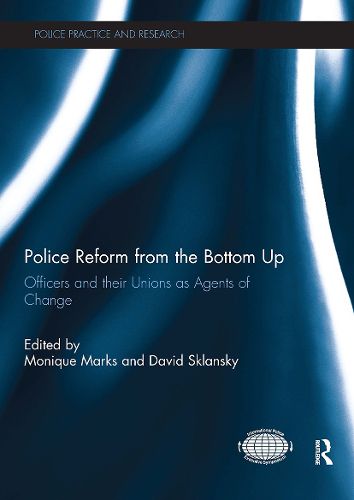Readings Newsletter
Become a Readings Member to make your shopping experience even easier.
Sign in or sign up for free!
You’re not far away from qualifying for FREE standard shipping within Australia
You’ve qualified for FREE standard shipping within Australia
The cart is loading…






What role can and should police unions and rank-and-file officers play in driving and shaping police reform? Police unions and their members are often viewed as obstructionist and conservative, not as change agents. But reform efforts are much more likely to succeed when they are supported by the rank-and-file, and line officers have knowledge, skills and insights that can be invaluable in promoting reform. Efforts to involve police unions and rank-and-file officers in police reform are less common than they should be, but they are increasing, and there is a good deal to learn about policing, police reform and participatory management from the efforts made to date.
In this pioneering volume, an international, cross-disciplinary collection of scholars and police unionists address a range of neglected questions, both empirical and theoretical, about the place of police officers themselves in the process of reform - what it has been, and what it could be. They provide a fresh view of police reform as occurring from the bottom up rather than the top down. This book will be highly useful for practitioners and scholars who have a serious interest in the possibilities and limits of police organizational change.
This book is based on special issues of Police Practice and Research and Policing and Society.
$9.00 standard shipping within Australia
FREE standard shipping within Australia for orders over $100.00
Express & International shipping calculated at checkout
What role can and should police unions and rank-and-file officers play in driving and shaping police reform? Police unions and their members are often viewed as obstructionist and conservative, not as change agents. But reform efforts are much more likely to succeed when they are supported by the rank-and-file, and line officers have knowledge, skills and insights that can be invaluable in promoting reform. Efforts to involve police unions and rank-and-file officers in police reform are less common than they should be, but they are increasing, and there is a good deal to learn about policing, police reform and participatory management from the efforts made to date.
In this pioneering volume, an international, cross-disciplinary collection of scholars and police unionists address a range of neglected questions, both empirical and theoretical, about the place of police officers themselves in the process of reform - what it has been, and what it could be. They provide a fresh view of police reform as occurring from the bottom up rather than the top down. This book will be highly useful for practitioners and scholars who have a serious interest in the possibilities and limits of police organizational change.
This book is based on special issues of Police Practice and Research and Policing and Society.